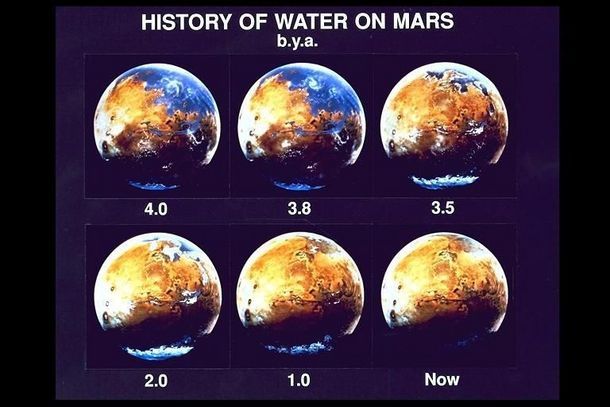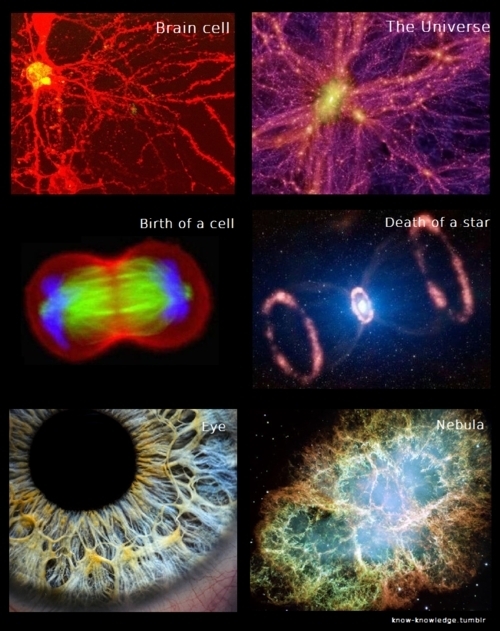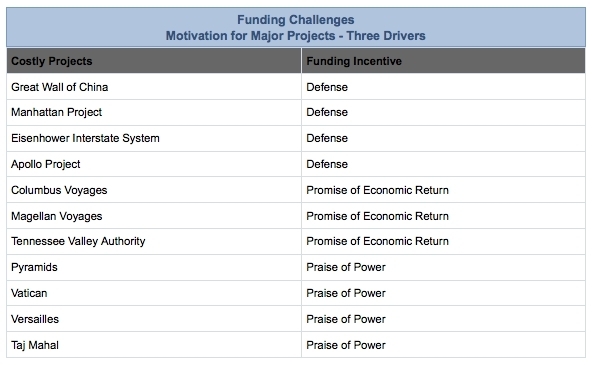5 Reasons You Should Be Excited About Mars Today
Perhaps the most popular cosmic story of the past decade was that Pluto was no longer a planet. Everyone shared it, and everyone knew about it. However, on a list of the most important scientific discoveries of the past decade, "Pluto is no longer a planet" ranks just under "everything else" and just above nothing.
This evening, however, at about 10:30 PST, something pretty incredible will likely occur, and it has nothing to do with the Olympics. Curiosity, the Mars Science Laboratory, is supposed to land on the red planet tonight or today, depending on where you happen to be on Earth. Now, I don't claim to be an astrophysicist. Just a doctor, and a mister, and a blog. But I urge everyone to care about what's happening on Mars today/tonight. It's kind of ridiculously exciting, for at least several reasons.
It's Incredibly Difficult and Incredibly Far Away, and It Might Not Even Work
Curiosity has been flying toward Mars for almost a year now. That's how long it takes to get there from Earth because, you know, it's Mars. That journey is actually the easy part, even though it alone is impressive. I mean, we shot a robot from a moving object to another moving object that is at a varying distance of 35 to 235 million miles away. Hey, science: Cool.
The hard part for Curiosity is landing, though. It's terrifyingly hard. From the atmosphere to the surface, it has seven minutes to go from 13,000 mph to zero. It sounds tough, and it is. That's why the descent of the rover is referred to as the "Seven Minutes of Terror," a phrase my girlfriend's been using for years in reference to my lovemaking. You owe me thousands of very sad dollars, NASA.
The above video describes the entire complicated process of Curiosity actually landing on the surface of Mars. Here's a non-video version, with significantly less dramatic music.
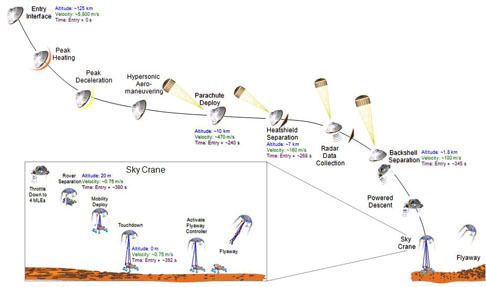
Bum bum buuuuuuuuum!
And because it takes so long for a signal to reach Earth from Mars, we won't even know if it worked for 14 minutes. For seven minutes after the Seven Minutes of Terror, Curiosity could be completely destroyed. Or completely and incredibly on the surface of Mars, already at work.
In a world that's currently entranced by people swimming for a few minutes, or running for a few more minutes, I can't help but think that there will be people missing out on what is currently one of the most exciting races of, well, the human race. Each nation is cheering on their best athletes to not fail in passing a finish line 100 meters away, when tonight the globe should be cheering for a one-ton robot to not fail in landing on something 60 million kilometers away. We should all hold our breaths and be on the edge of our seats for 14 minutes, wondering at the possibilities, and hoping for success.

Yes, I meant literally.
Now, I don't want to belittle the accomplishments of our Olympic athletes. They've worked remarkably hard, and they are certainly the most physically fit of anyone on the planet except, I don't know ... tigers or something? Tigers? Whatever. Regardless, in 2012, fitness is no longer merely physical, and we should be shifting toward the celebration of the mentally fit. Darwin's "survival of the fittest" remains true, but much less in regard to our physical evolution. We have mastered our harsh environments and dangerous predators (like tigers). Our survival on a global level now depends on our collective mental and technological evolution, not on individually being the fastest or strongest.
So let us cheer for a robot today. Let us celebrate its excellence, its possibility of failure, and the incredible task it will undertake for seven minutes. And, hey, if it does fail, I imagine we would enjoy that, too. In our current YouTube culture, who doesn't want to see a one-ton robot fly 50 million miles just to fall flat on its lack of face?
But It Might Work!
If Curiosity does fail, I hope that doesn't deter the public too much. The great thing about humanity, and Batman, is that we do not let failure keep us down. We fall so that we may pick ourselves back up. We need to continue testing the limits of invention and exploration and discovery, and learn from our failures so that we may later succeed. And if Curiosity succeeds today? Well, that is still amazing, despite the fact that we have successfully landed rovers before.
The first rover, the Sojourner, landed in 1997. It was expected to last one Earth month, but lasted three. In 2004, Opportunity and Spirit were launched. Their primary mission was to discover water, and they succeeded. Opportunity was planned to last less than 90 days. It has continued functioning for about 3,000 days. Oh, and long before that, we landed on the moon a bunch of times.
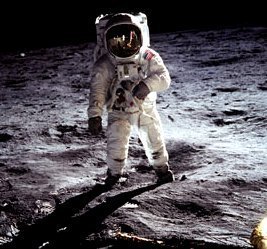
Remember me? ... Please?
I guess my point here is ... isn't that all fucking incredible? Like, still? We should be in awe of those accomplishments, and push for more. This lack of awe and interest makes me think of this year's Prometheus, a good movie covered in a bad movie. One of the various problems with the film is that the characters didn't seem to care about the setting in which they were. Specifically, the geologist who was "in it for the money, not the friends." In fact, it was pretty much a problem for everyone but Ripley 2. There was no hint of wonder at all in these people, and I don't know how that's possible. The movie is only set in 2090. Excluding the fact that the crew also finds alien life and structures, they are still light-years away from Earth, on another planet. They are scientists on another planet. I'm sorry, but don't you think that's pretty mind-blowing, Scientist Who's Just In It For The Money, Not The Friends? No one's asking you to be in it to make friends, because no scientist is in it to make friends. Or money? Seriously, aren't you amazed, Fifield from Prometheus?

We are slowly exploring and discovering more about the universe, our galaxy, our solar system, ourselves and our place within it all. There is wonder in the universe that we keep experiencing and discovering, but I'm amazed that there isn't more interest in it, or more money in it. As astrophysicist Neil deGrasse Tyson once pointed out, the money required to send a satellite to Saturn is less than what Americans spend on lip balm in a year. And most lip balms are actually pretty useless. Are we not amazed, or curious enough, to spend lip balm money to continue our discovery? The Curiosity rover's actual name is the Mars Science Laboratory, and I'm going to say that in a different way that will hopefully have more impact: We have a laboratory on Mars. A science laboratory. On the planet Mars.
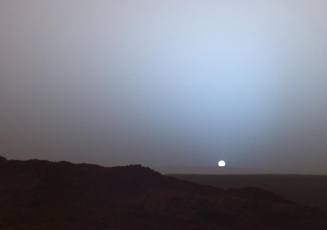
After a long day of science, just watching the sunset with a Corona. On Mars. Pretty chill. NBD.
And just for the sake of wonder, and the breathtaking successes of humanity, here are a couple more ...
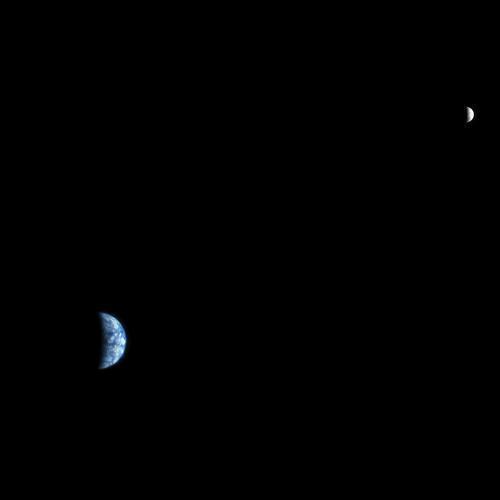
Earth and the moon, from Mars.

Earthrise on the moon.
Life, Part 1: Death
We all know that death is a part of life. Unless you're like 5 years old, in which case: A) What are you doing on Cracked? B) Go get your parents to buy you a goldfish and C) Sorry about your goldfish. Death is a part of life.
Cracked has already covered a few ways the universe can kill us, without warning. But that list is merely a fraction of a fraction of the countless ways the universe does not want life to survive. Most of the universe can kill us instantly simply due to radiation, heat or cold. Most planets' orbits are unstable and most planets are doomed. In fact, all planets are doomed because all stars are doomed. In fact, all stars are doomed because the universe is, in all likelihood, doomed.
And that's ignoring how dangerous just the Earth is. We can't even safely inhabit 2/3 of the planet's surface. The planet is bombarded with earthquakes, tsunamis, volcanoes, hurricanes, et al. We've already seen mass extinctions due to climate change, disease, ourselves and asteroids. We are barely even here yet, as it took 3.5 billion years to achieve multicellular life. The fact is, we're inching along a thread, and we're always just hanging on by it.

Us.
Even if we just focus on asteroids, we are pretty doomed. It's not often talked about, but we are constantly having asteroids thrown at us at deadly speeds. This coming February, an asteroid will pass by Earth. Depending on how Earth's gravity nudges it, that same asteroid might hit us in 2020. The universe is a perpetual crap shoot, the dice have a practically infinite number of sides, and "life goes on" is only one of those sides.
The more we explore outer space, the more evidence we find of truths such as these. Some may call these truths an incredible bummer. Others may just view them as a very clear calling; as a reason to push discovery further and to fully invest in the survival of our entire planet. But even though these cosmic warnings are very real, they don't quite seem like it. In recent decades, our entertainment industry has flooded us with stories of deadly volcanoes, deadly storms, deadly asteroids, and the list goes on. And that doesn't even count disastrous movies, like 2012.

Deadly piggybacks.
We dismiss these potential disasters because they remind us of silly movies about silly events where silly scientists shove people out of the way for silly reasons. But these threats are real, and we should realize that by now. We are tasked with our own salvation unless proven otherwise. No one is going to save us but ourselves. Now, this is not to say that we should be in a constant state of panic, but we should be looking forward, for a way out. We should be exploring foreign planets and determining how and if life can sustain itself in places that aren't Earth. We should be discovering if we have the tools to make uninhabitable planets habitable. Yes, terraforming sounds like science fiction, but so did until it was invented. We have amazing abilities and tools in our future, and a step toward that reality is landing on Mars tonight.

A 35 million mile step.
On a cosmic level, we simply can't stay here forever. Hell, on a cosmic level, how could we possibly want to stay here forever? There are likely somewhere near 4 trillion planets in our galaxy, and there are an estimated 125 billion galaxies in the known universe. Staying on just one of those planets isn't simply a death warrant. It's a one-way ticket to Yawnsville (just two miles north of Snoozeburg).

I missed the last train to Yawnsville but I'm still bored.
But just outside of Yawnsville is ...
(Click below to finish the above sentence. Stay on this page to do whatever.)
Life, Part 2: Life!
Specifically, alien life. Let me back up ...
In the '60s, there was a race to the moon. And thank God America won, because otherwise, well, nothing. But thank God someone won, because it inspired a whole new generation of scientists, and championed a new era of space exploration and scientific discovery. At least, that's what we are told and that's what we tell ourselves. In reality, not many people gave a shit about the moon landing after the fact. Many were glad it happened, but still thought it was a waste of money. After all, that's valuable lip balm money we could be spending.
But one thing is true about the moon landing: Everyone remembers where they were when it happened. It's the only wonderful event of the last century about which we can say that. Everything else was a tragedy of some kind. I remember where I was on September 11, my parents remember where they were when Kennedy was shot and my grandparents remember where they were when Pearl Harbor was attacked. Everyone remembers where they were when a human being walked on the freaking moon.

Remember me? Impressed yet? Please?
There has been no event like that since, and it apparently didn't even have much of an effect on the country. We went to the moon, played a little golf, and then stopped caring. Tonight's Curiosity landing certainly won't be able to come close to matching that, but it's at least a precursor to something that could change the planet's mind. No, I don't mean a manned mission to Mars, even though I think that would be absolutely incredible seriously holy shit a person walking on Mars that's nuts let's do it ... ahem. Even though I think that, it won't have a huge impact on the public. The only thing that will get people truly excited and ready to take the next giant leap for mankind is part one of the Curiosity's two-fold mission: 1) To find evidence of life beyond planet Earth and 2) Bleep bloop I am a robot what means "love"?
Former life on Mars is not at all unlikely. There is water frozen on Mars, and the remnants of an atmosphere. Scientists believe that billions of years ago, Mars looked more like this:
Unfortunately, the planet's magnetosphere disappeared, which means solar winds scorched the planet and got rid of most of its atmosphere, making it the cold red rock it is today. Basically, Mars most likely used to be a smaller version of Earth, but the Universe gave it the business and everything went to shit. It went the way Earth could go. It's even possible that life here began on Mars. At one point, asteroids bombarded Mars' surface, as well as our own. Bacteria are able to survive in the cold radiated vacuum of space, so it is possible that life was transferred from a planet that didn't work onto a planet that did work, for at least a little while longer. We should find great comfort in that. If an asteroid ends up slamming into Earth and destroying life here, it is possible that a chunk of us, of life, will fly off into space to find a new home. Maybe an asteroid of bacteria will crash through the icy crust of Europa, and life will begin in the warm waters near its core. Maybe . Life goes on.
Or maybe we won't find life at all, ever. That's just as possible. But if we do, it will be the single most important discovery in the history of the planet. And it's not a huge leap to get there. All it takes is a "yes" to go from nothing to "the most important thing ever." That seems worth it. But no matter what the answer is, we should still feel compelled to expand into the cosmos. If we are the only life in the universe, then we are letting the universe down by not securing our survival. If we aren't the only life in the universe, then we are letting ourselves down by not exploring the vast, magical playground we have been given. Life, the universe and most importantly life within the universe are too important to ignore anymore. Below is a photo that has made its rounds on the Internet. It compares very, very small things to very, very big things.
There is no mistaking the similarities, and hopefully no mistaking the implications. Not that there is a "higher power", but that there is meaning and purpose in and outside of us, and the Universe is daring us to discover it. And these similarities don't stop at the above three. Independent of the theory that life on Earth came from Mars, it is suspected that asteroids are factories for the building blocks of life, like amino acids. The theory is basically that an asteroid crashed into Earth and brought with it all of the things life needed in order to begin.

Sound familiar?
To quote Neil deGrasse Tyson again, "We are in the universe, and the universe is in us." We have a connection and perhaps a purpose here, within us and without us. There is a popular theory called the heat death of the universe, referring to the ultimate end of everything. The universe reaches maximum entropy, and everything cools, slows and stops, because that's how physics works. What this theory doesn't seem to account for is the most amazing part of the known universe: life. Life makes choices that the rules of the universe do not affect. Life creates technology and generates motion and heat. Given the discovery of the Higgs, life may even be able to create mass someday. Given time, we have no idea what we will be capable of. So, given life's ability to step out of and manipulate the laws of the universe, could one say life does have a purpose? Could the purpose of life in the universe be to keep the universe alive?

"Nah."
OK, Fine. Oil?
As much as I wish things like "amazement" were enough to push us into a new age of cosmic discovery and exploration, I understand that they won't. The moon landing wasn't about the survival of our planet. It wasn't about the wonder of the cosmos or the desire to understand our place in the universe. It was about the Soviet Union, and war. We didn't care so much about space after we landed on the moon because our goal had been achieved. We beat the Soviet Union. Yay. The end.
In a presentation at the International Space Development Conference in 2006, Neil Tyson used the following chart to display the only real motivators behind large global or national projects:
Discovery and exploration will probably never be on that list. In 2010, NASA's budget was about $8.7 billion. In its entire history from 1958 to 2011, the total budget was $526.18 billion. In 2010, the U.S. military budget was $663.85 billion. That means that in one year, the military spent $137.67 billion more than NASA has in more than 50. So despite the fact that Earth is in constant need of defense from the dangerous universe, I guess "defense" will no longer be a reason to pursue a space program. Unless of course China double dog dares us to meet them by the flagpole after school, on Mars.
We live in a world very different from that of pharaohs and popes, and I highly doubt "praise of power" is likely. So unless something drastic changes and "science" or "destiny" finally makes the list, we can safely assume that "promise of economic return" will be the driving force behind the future of our space program. You can put a price on Curiosity, but you can't get a profit from curiosity, because the exchange rate of dollars to wonderments is just too whimsical.
What I'm getting at is that I'm incredibly excited for the new Mars rover to land for many reasons, but mostly I really hope it finds some sweet, sweet oil. It's definitely possible, given how long ago Mars had an ocean and was primed for life. Part of Curiosity's mission is to search for oil, or natural gas, or anything that could be used as fuel. Oil wouldn't even have to mean that life once lived on Mars. There are still theories that abiogenic petroleum is possible, as well as natural gas created from non-biological means.

"Biological means."
Of the top ten global companies by revenue, six of them are oil and gas companies. In 2010, the total revenue between them was approximately $2.1 trillion. If there is more oil outside of planet Earth, you better believe billions upon billions of dollars will be spent to get at it. If oil has to be the reason, then oil will be the reason. Because we need something. Some reason to invest in the creation of faster, safer, stronger and better space exploration. With that will most likely come a plethora of discoveries that could better the lives of everyone here on Earth. Maybe we can bring water from elsewhere to those who need it here. There will be more resources, and more uses for those resources. When you spend tens of billions of dollars to figure out how to live in space, you will ultimately make living on Earth a whole lot better and easier in the process. Spiritually, physically, mentally and even economically, humanity will skyrocket.
But anyway. I'm getting a bit ahead of myself.
Ahem.
After flying through space for about eight months, a robot might land on Mars tonight.
Author's addendum: Hooray.
I, Cody, promise my next column will have jokes in it, and not just be about things I think are cool. Also, follow me on Twitter and Tumblr or whatever.
For more from Cody, check out Advanced Batman Theory: Why Nolan Should've Killed Bruce Wayne and The 12 Most Baffling Genres of Stock Photo, Explained.






